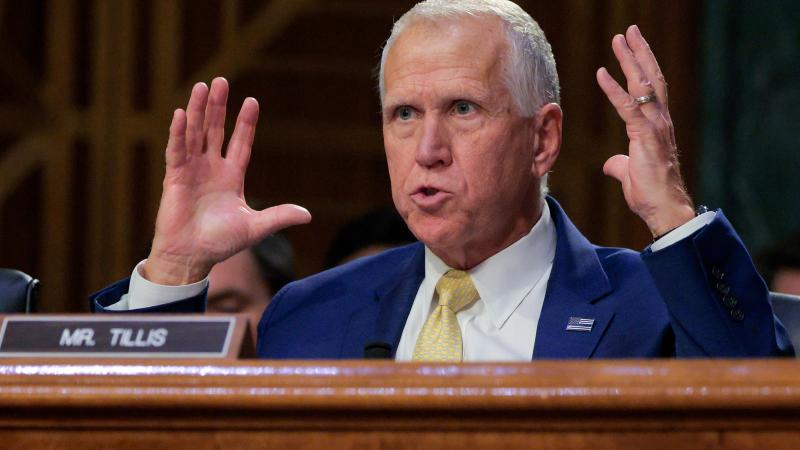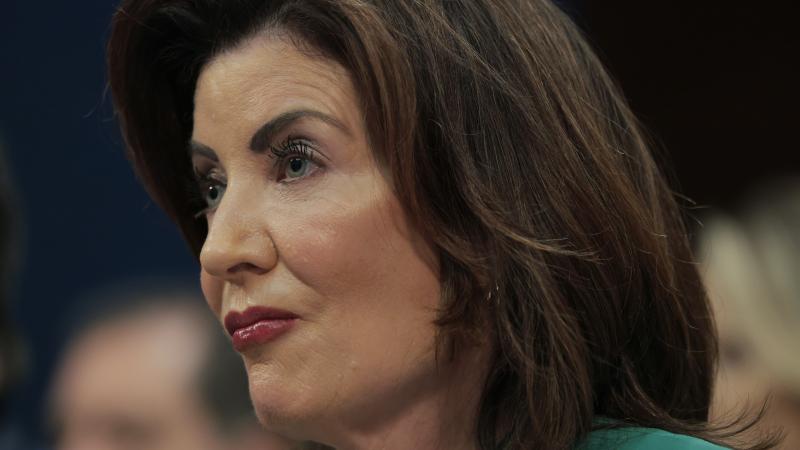Lawsuits claim pro-life speech illegally censored by 'deceptive advertising,' vaccine laws
Supreme Court struck down similar California law requiring pro-life pregnancy centers to promote abortion.
Connecticut is forcing pro-life pregnancy care centers to promote abortion or risk fines for "deceptive advertising" even for "ordinary, truthful statements," according to a federal lawsuit challenging the new state law.
While it's targeted at "limited services pregnancy centers," the law excludes abortion clinics that do not offer prenatal ultrasounds or obstetric services even though these are "limited services" for pregnant women, Care Net Pregnancy Resource Center of Southeastern Connecticut said Tuesday.
That makes it an "underinclusive" regulation that furthers no "compelling interest in informing pregnant women where they can obtain abortions or abortifacient drugs," according to the suit.
Care Net asked for a preliminary injunction against the law as an unconstitutional restriction on "its right to truthfully describe its mission and services in its own words." The law violates its freedoms of speech, religious exercise and "expressive association," as well as equal protection and due process rights, the group claimed.
It's the first of two First Amendment challenges filed by the Alliance Defending Freedom (ADF) this week. The public interest law firm sued California Wednesday for a new "censorship zone" law that targets purported COVID-19 misinformation but prevents Right to Life of Central California from engaging in pro-life activism on the sidewalk in front of its building, or even its parking lot.
The law creates "floating 30-foot bubble zones around persons within 100 feet of and seeking to enter or exit any facility that provides any type of vaccine," including the Planned Parenthood next door that offers vaccines against HPV, the suit says. Yet the law itself repeatedly cites infections that spread "through airborne transmission," not those through intimate contact.
'Underinclusive'
Connecticut is known in First Amendment legal circles for a 104-year-old "ridicule" law that has long been presumed unconstitutional for criminalizing speech. Though the law is expressly limited to advertisements, prosecutors have repeatedly used it against people who use racial slurs, including a 16-year-old this year and two college students in 2019.
Its deceptive advertising law appears similar to a California law the Supreme Court determined in 2018 was likely unconstitutional, remanding it to the appeals court. The majority opinion by Justice Clarence Thomas even used the same "underinclusive" reasoning.
NIFLA v. Becerra, however, is not mentioned in the Care Net lawsuit even though ADF filed both challenges. It also invoked the precedent in an earlier challenge to a similar municipal law in Connecticut that ended with a settlement. A spokesperson who asked not to be named said the case would be invoked later in litigation.
"The U.S. Supreme Court already ruled in NIFLA v. Becerra that pro‐life pregnancy centers should be free to serve women without unjust government punishment because they don't encourage abortion," according to an email statement attributed to senior counsel Denise Harle.
A spokesperson for Attorney General William Tong, the named defendant, declined to answer how Connecticut's law was different from California's.
"Women need accurate and timely information about their reproductive health choices," Tong said in an emailed statement. "It's indefensible to lie to women at a vulnerable time. I testified in support of Connecticut's law and am fully prepared to defend it in court."
Care Net emphasizes its Christian ministry alongside its free medical services including "lab-quality pregnancy testing and limited obstetric ultrasounds." Its staff includes two registered nurses, a certified ultrasound technician and a licensed osteopath.
No one could confuse the services advertised by Care Net with abortion, according to the suit. Every page on its website says in bold that Care Net "does not provide or refer for terminations or emergency contraception.”
Under the law's novel criteria, pro-life centers that share an office park with a dentist would be regulated if they ask women if they have experienced pregnancy symptoms, the suit claims. So would a center that does not "advertise any medical services" or a fully licensed pro-life OBGYN practice.
Yet the law, which took effect July 1, also exempts "hospitals, outpatient clinics, abortion clinics, county health departments, and private physicians' offices from compliance," even those that serve many pregnant women.
Democratic Gov. Ned Lamont, Tong and lawmakers made clear they were specifically targeting pro-life centers and yet offered no evidence of prior deceptive advertising, the suit claims.
Care Net accused Tong of feigning uncertainty about whether the state Unfair Trade Practices Act already gives him authority to prosecute deceptive advertising by organizations that offer free services. It said pro-life pregnancy centers are the only kind of organization singled out for unique scrutiny.
When he signed the bill, Lamont called abortion a "God-given right" that pro-life groups were denying women through "deceitful ploy[s]." Tong testified he would take action against a center that advertised the message "Need help with your pregnancy? Do you want abortion-related counseling?" if it didn't at least refer for abortions.
Tong's assertions are why Care Net is not using those phrases in its messaging, it said. His threat violates its religious beliefs because its services are "religiously motivated."
The attorney general has sole discretion to determine whether a pro-life center has deceived the public, including by "omission," and seek $500 penalties per violation if the center doesn't issue "corrective advertising" within 10 days. The center can also be compelled to pay for and disseminate such advertising.
Tong also said it would be up to a judge or jury to determine whether a pro-life center whose staff wear "white coat[s]" deceived someone expecting abortion services.
"All of Care Net's medical personnel wear scrubs," the suit says.
















